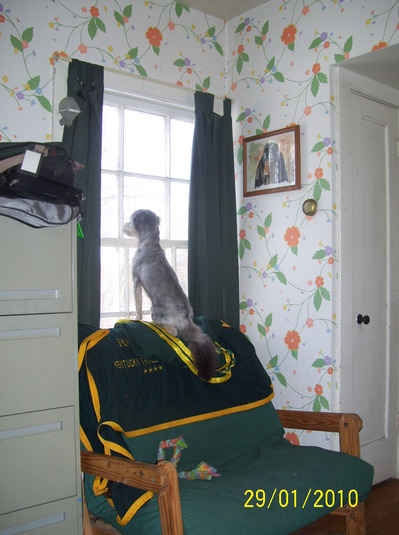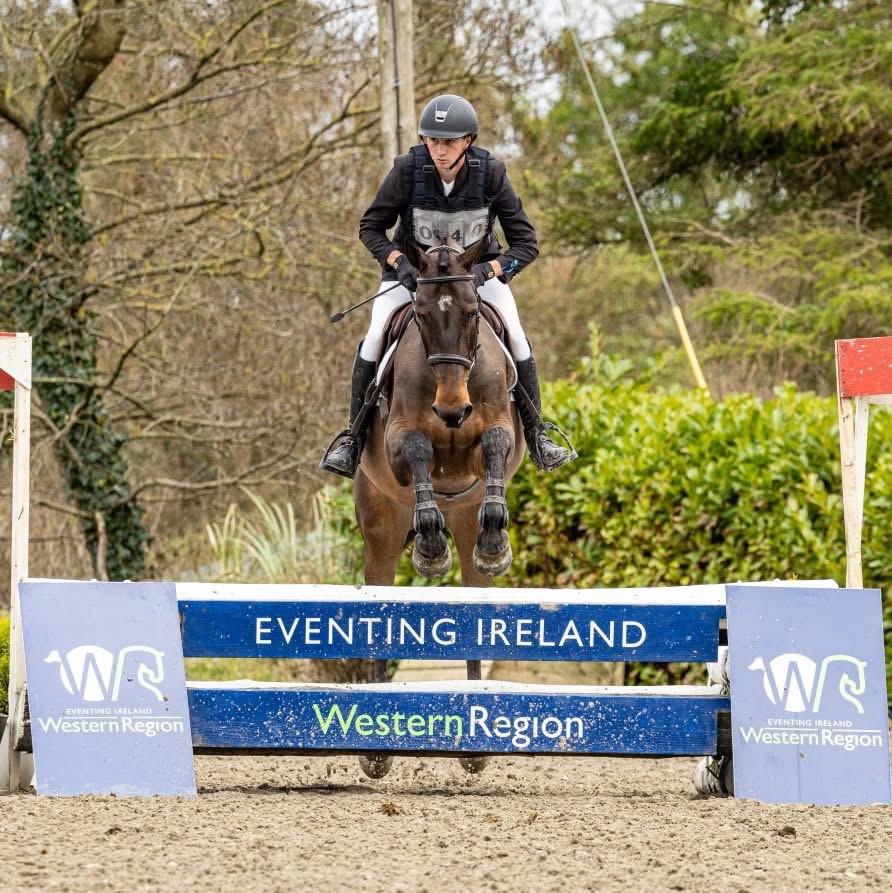Last week, we re-published an article written by Katie Lindsay from April 2010, entitled “Where Have All The Good Times Gone?” We asked readers if they thought the sport had changed since then, for better or worse. Katie decided to examine some of those questions, and we’re pleased to bring you her follow up to that original article, now three years later. Many thanks to Katie for writing, and for her continued support of Eventing Nation. And thanks to you for reading!

From Katie:
When I checked my email the other morning, I found several messages liking my article on EN. Much as I love getting positive reinforcement, (who doesn’t?), I didn’t have a clue what the senders were talking about. I haven’t written for EN in several months, and I hadn’t yet checked my usual morning go-to sites – EN, the COTH Forum, and Facebook. Instead, I was busy playing a cut throat game of Words with Friends that had taken precedence.
I am flattered to have EN select my 2010 article “Where Have All The Good Times Gone” as worthy of reprinting, and three years later, it still expresses some of my concerns about our sport. At the risk of being accused of talking to myself like a garden variety schizophrenic, I am going to respond to some of my own questions and maybe along the way, pose some new ones.
The gist of Visionaire’s questions in her introduction to the article asked if our sport has changed since 2010. Has the change been for the better? For the worse? Sadly, I’m unable to give a definitive answer. In some ways it’s better, in some ways it’s worse. Playing on the theme of the article, has our sport regained some of the good times that it had “back when?”
I am not going to turn this into an op-ed about the long versus the short format. That topic has been chewed to death. The evident popularity of the Training and Novice Three Days since their inception is encouraging as both educational and fun. However, they must be seen and marketed as goals in themselves, lower level Olympic Games to strive for. I think it is absolutely delusional to believe that these lower level success stories will have any impact whatsoever toward reviving the long format at the upper levels. The di has been cast there. With the exception of Mary Fike’s long format Preliminary in the fall, other attempts have faded off into the sunset because, despite the loud chatter, the entries just weren’t there. It is what it is … Better or worse? In some ways better and in some ways worse.
I am seeing more and more pressure and stress in the recognized events than there was three years ago, and certainly than there was “back when.” Qualifying for this and that is a huge factor at all levels. Riders chase around like mad to make their bones so they can go on to future things – Young Riders, advancing up the FEI food chain of stars, the AEC’s, Area Championships, whatever.
Added pressure has also been imposed on most participants in the game. Organizers, course designers, trainers, clinicians, riders, owners, volunteers, parents, officials. The list goes on and on. Those who put on the events feel pressure to “kick it up a notch,” offer more and more in the way of amenities, courses, prizes. They hear the background rumble for cash prizes along with lower costs to the participants. Simultaneously, they are burdened with more and more rules, “have to’s” and suggestions from the governing bodies of the sport.
I ran a large event for a number of years that hosted CIC *. ** and *** divisions as well as national competition from Training through Advanced. When the event tanked in 2009, I did a one eighty and started an eventing Derby with dressage and two jumping phases. We kind of invented and tweaked our own rules as we went along. The first year, the Secretary called me as he was handing out packets and asked “What is the rule about …” (whatever it was). I answered “I don’t know. What do you think it should be?” “I think we shouldn’t allow it,” he said. “O.K., that’s the rule then,” I decided.
How much less stressful than having to go through bureaucratic hoops and a ream of rule books? True, there is potential anarchy implicit in such practices, but it sure is fun – and we’ve continued our tweaking every year since then. Competitors seem to respond favorably to the relaxed atmosphere as well. This year, and two years before, it actually snowed on one of the three days, but everyone managed to stay cheerful with that wonderful old time eventing spirit of “We can tough our way through this and find a way to enjoy ourselves!” Forgive the digression, but this is the spirit I want to see more of in our fancier events. Too much grimness and pressure, much of which I suspect is self-inflicted.
Trainers/coaches/instructors feel pressure to show that they can produce winners. They make a living doing what they do, and improved levels of quality are becoming necessary, but elusive butterflies to chase. Riders, an increasing number of whom make their entire living from eventing, are constantly looking for their next equine super stars. This in itself is scarily expensive. Since 2010, there seems to be a marked increase in syndicating horses. Finding and keeping supporters to share a dream adds lots of stress and pressure.
In so very many ways, eventing has completely ceased to be a sport that’s very comfortable for lower and middle level amateurs. Like our society which has lost the middle class, eventing is floundering between the very high profile individuals, and those who are struggling to find a way to enjoy their horses in competition. Better or worse? Sadly, I think the scales have tipped into the worse category.
Probably as a result of the added pressures discussed above, and much to the distress of our governing bodies, there has been in the past three years, at least in my Area, an increase in the quantity and quality of unrecognized competitions being offered as a viable option to the more sophisticated – and costly – recognized events. Previously, the mantra I heard repeatedly was that unrecognized competitions were bad and even dangerous because they weren’t subject to our associations’ rules.
I think this has changed. The “little” events also present a venue in which the “average” backyard horse can compete and maybe even have a shot at placing. They also offer a more affordable place where a potential eventer can get his/her feet wet and see if he/she wants to go on to a higher level of sophistication. Better or worse? Better I think.
The basic core values of eventers’ profiles is basically unchanged. Competitive? Yes. Dedicated to their horses? Big yes. Good work ethic? Mostly yes. A more carefree, can do spirit than that evidenced in other similar disciplines? Again, mostly yes. What has changed is the environment in which those who make up the heart of eventing came from, and the environment in which they are asked to function. For whatever reason, entry level numbers at recognized events have seen a slight downturn. This is worrisome. Coupled with the rise in smaller more casual events, I believe something has gone askew.
OK then, what to do about it if in fact all the above is reality? It’s easy to point a finger, but really hard to find solutions. It’s like a big snowball rolling downhill. The really upsetting thing that has resulted is an escalation of the “me” versus “them” mindset. Organizers snipe about riders, riders grumble about organizers. Officials are easy blame game targets for everybody. Nobody sets out to do a crappy job, and everyone faces challenges. That’s a given. Simplistic as it sounds, if everyone would agree to “play nice” for just one event, maybe some of the fun would come back … or maybe not.



















